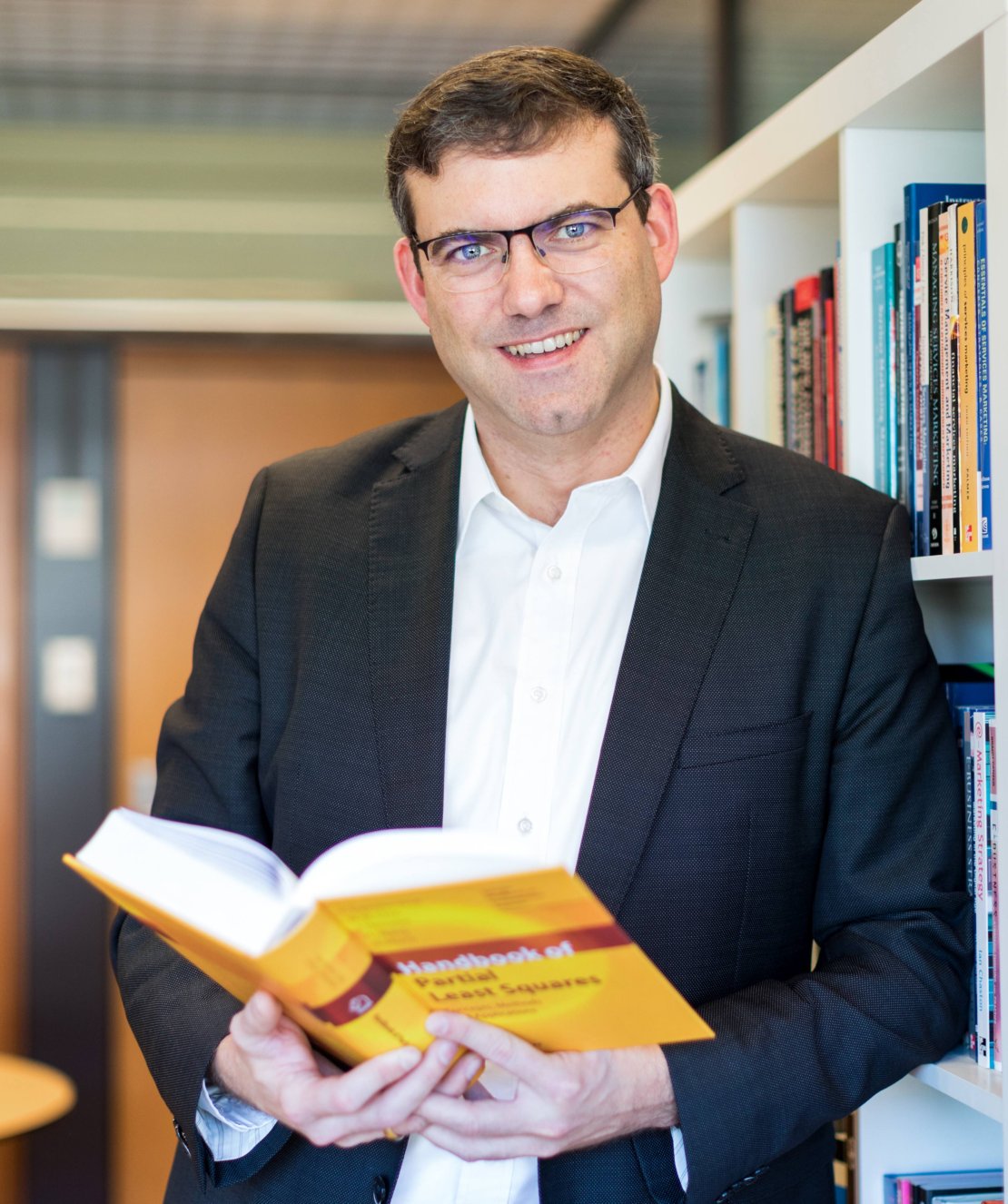Web of Science, the organization responsible for the scientific monitoring tool Clarivate, recently published an overview of the most cited scientists of the past year. The list also includes one of our very own: Jörg Henseler, Professor of Product-Market Relations at the University of Twente.
Henseler is among the top 6000 most cited scientists of 2019 and is even in the top 120 in his field. Henseler has been added to this list for the second consecutive year. He has this to say about his research: “Is my work innovative or extraordinary? I’d say it’s mainly very practical. Scientists are looking for truths, for certainty and security. My research offers them tools that allow them to reach more definitive conclusions.”
Broad applicability
Henseler's broad-ranging research interests encompass empirical methods of marketing and design research as well as the management of design, products, services, and brands. Thanks to approximately 2,500 citations in 2019, his total number of citations adds up to a whopping 8,000: a truly impressive number. Many of the citations come from one article published in 2009. Together with two of his fellow scientists, Henseler wrote a paper entitled “The use of partial least squares path modeling in international marketing” that was published in the academic journal Advances in International Marketing.
Several years later, around 2015, the number of citations suddenly skyrocketed. Henseler states: “I occasionally check Google Scholar to see how others are using my work. The results show that my research is used across a broad range of disciplines and the methods I developed are widely cited in management science. But scientists working in the areas of supply chain and new management technology are also reaping the benefits of these methods.”
In that sense the work done by Henseler fits in very well at the University of Twente, as he himself says: “My area of expertise is building bridges between disciplines, specifically between the management sciences and engineering sciences.”
Not a goal in itself
Even though the numbers look good, to Henseler, publishing and citations are not goals in themselves. “When I just started working as a scientist, I did feel pressure to write a lot and publish a lot. Every January, my goal for the year would be to submit a paper once a month. But I also discovered that this goal was too ambitious. By September, I’d be exhausted. There are more ways to ensure your research contributes in meaningful ways: by focusing on quality and impact, not quantity.”
Because therein lies the core of the research; developing methods that will benefit others. “I would estimate that roughly half of my publications are methodological in nature, aimed at strengthening the research of my fellow scientists. The time investment is relatively little compared to that of other scientific disciplines, mainly because no extensive data collection is required.”
To Henseler, it is mainly important that his work can be used widely. “I prefer open access publications. This is important to the field I work in, as the work simply has to be available for others to use. In several cases I even footed the bill for open access myself, because I believed it was incredibly important material to certain target groups and they needed to have access to it.”
There are multiple ways of generating impact
Henseler tries to find various ways of sharing his research with colleagues from within and outside his own field. Henseler states: “I am now spending more of my time on writing a book. In general, writing a book is less appreciated, although it is important that several concepts are placed in a wider context, in order to better understand them. This requires our full attention as well.”
Another way of sharing expertise is through the supervision of doctoral candidates. At the time of writing, Henseler is supervising more than twenty. “The great thing about it is that it leads to wonderful interdisciplinary cooperation, across the marketing and innovation spectrum. Many of my doctoral candidates work in the industry in Germany and are completing their PhD programmes next to their regular jobs. Many are doing their work in their spare time, because their research could further their careers. And our field is enriched with new research at the cutting edge of science and business, where societal and economical relevance meet.”






